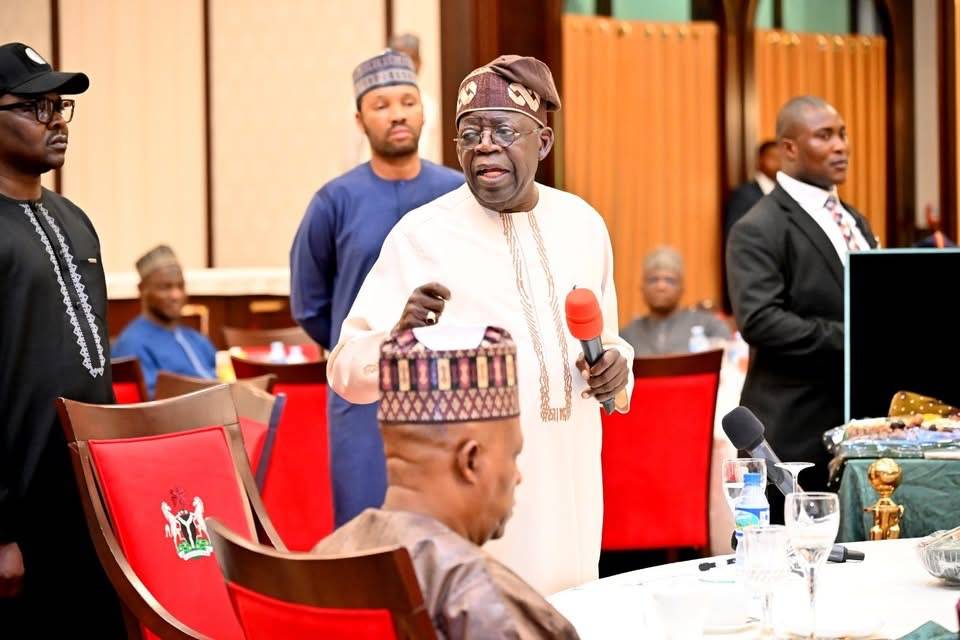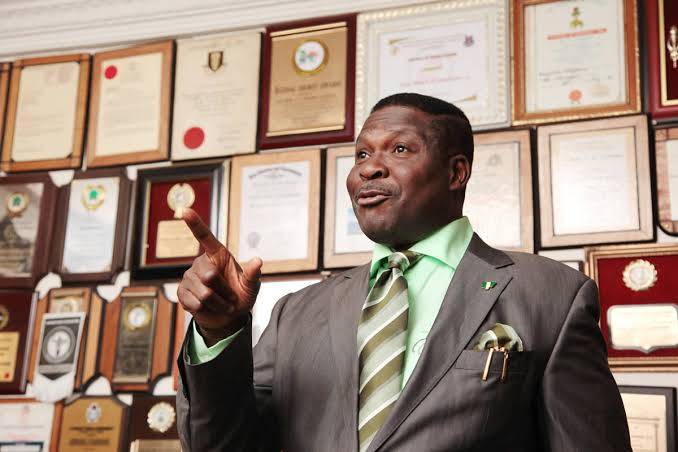By Niran Adedokun
Listening to former Vice President Atiku Abubakar speak at his world press conference recently reminded me of the idea that “the law is an ass.”
Atiku, hit by the loss of his appeal against the judgement of the presidential election tribunal, took on the Nigerian judiciary. He had copious evidence, including the words of newly retired Supreme Court Justice Musa Muhammad Dattijo, who took his constituency to the cleaners last week! But even though the retired jurist made a point about the erosion of values and public confidence in the judiciary, there was a significant divergence with Atiku.
Dattijo looked at his more than four decades on the nation’s bench, reviewed the performance of the judiciary, and identified the various reasons why things have degenerated.
He spoke about the enormous powers of the Chief Justice of Nigeria (CJN) and asked for a rethink. In describing the dangers of the failure to do this, Dattijo borrowed the words of British historian, Sir John Dalberg-Acton to the effect that “power tends to corrupt and absolute power corrupts absolutely.” He also touched on the issue of nepotism and the entire process of appointing judges. He identified the unholy dalliances between judges and politicians, requesting urgent re-considerations.
On the other hand, Atiku’s main grouse was the application of “technicalities and legal sophistry (whatever the latter means) to affirm electoral heists and undermine the will of the people.”
But this is the very point we miss about the law; it is a technical art! Although people speak about the spirit and letter of the law with the hope that a stratification could be made when society gets confused about legal provisions, even that delineation can only be subjected to a laid-down criteria of interpretations, which is invariably technical!
Why do they say, “The law is an ass”? Some literature credit Charles Dickens with bringing the phrase into the public with a character in his 1837 novel, Oliver Twist.
The selfish, ever-scheming character, Mr. Bumble, got married to a widow whom he hoped to exploit. However, he soon realises that his new wife is as scheming and domineering as they come. When theft by his wife brings them before a court of law, and he tries to exonerate himself, he is informed that the law assumes that a wife acts under the instruction of her husband; hence, he is as guilty. Bumble then replies, “If the law supposes that… the law is an ass—an idiot.” The character refers to the rigid application of the law here by drawing a parallel to the “stupid” obstinacy of the donkey.
Analysts believe that through Bumble, Dickens tries to criticise the rigidity of the law to the extent of its failure to take account of the nature and relationships, and the chance that the stiffness of the law might be contrary to justice. Although the rules and principles of equity have watered down the strictness of the common law in situations where stern adherence to the law can lead to apparent injustice, precedents and the law still largely dominate judicial considerations. A politician of Atiku’s stature must, therefore, understand this and avoid casting aspersions on the judiciary and its processes.
This does not mean that the courts are perfect. Aside from the fact that members of the judiciary are susceptible to compromises, they are, most importantly, human beings capable of errors! The acknowledgement of this tendency came from the late Hon. Justice Chukwudifu Oputa’s dictum on justices of the Supreme Court to the effect that “We are final not because we are infallible; rather, we are infallible because we are final.” There must be a margin for error, but even then, we must respect the court of law.
Every democrat, especially one with Atiku’s experience, should know and respect this. This fact is even more so because of how much the former Vice President has gained from the courts in the years gone by. By his admission in his latest speech, he got seven different judgements that have set precedents in Nigeria’s jurisprudence. One of those judgments was also manifestly based on technicalities. Atiku contested to be President in 2007 under the Action Congress (AC), even though he was elected and remained vice-president as a member of the PDP, which tried to send him packing under the direction of President Olusegun Obasanjo.
But the former VP had the backing of the courts, which concluded that he ran under the same ticket as Obasanjo and must remain in office if Obasanjo was president. He remained VP with a PDP ticket while contesting under the AC, how more awkward could things appear to the ordinary eye, but Atiku saw this as justice at that time, even though it was based on technicalities.
If the exact technicalities he now criticises once saved him, it serves no good purpose for such a man to disparage the same judiciary just because he has lost out in a particular case. The former Vice President could be hurt over the dismissal of his petition, but his credentials as a statesman and beneficiary of judicial interventions prescribe caution and democrat. You cannot win all the time and cannot pull down the roof under which you once took shelter on the strength of one tiny leak!
It gladdens the heart though that Atiku spoke about the need to reduce the role of the courts in determining winners of elections in Nigeria. Democracy should demonstrate the people’s powers to choose their leaders but that is not the case in Nigeria. Increasingly, the courts have become the determiners of those who win elections and lead the people! This aberration diminishes the people’s confidence in the democratic process and encourages politicians who get into office through judicial pronouncements to misbehave.
Yet, political leaders across political party lines have much more to do about this situation than the judiciary or even the amendments of laws. The Nigerian political class is so terribly indulged and indisciplined that democratic growth cannot be achieved without a change in their attitude.
One of the most destructive tendencies common to Nigerian politicians is the winning “by all means” attitude! Politicians speak about corrupting the electoral process in Nigeria like it is not a universal practice, but it is! As the Independent Electoral Commission (INEC) is amending its rules to improve the delivery of elections, politicians are working hard to circumvent these rules. So, no matter how much INEC tries, politicians will bribe its staff (permanent and ad hoc), bribe voters, bribe members of the security agencies, organise and supervise brigandage, and do everything that needs to be done to ensure that they win elections. And when they don’t win, they do everything to manipulate the courts. There are no fair losses in our elections.
Before the elections this year, for instance, INEC was joined in 1,241 intra-party cases resulting from the party primaries. It is so bad that some post-election petitions are still hinged on party primaries! So, if politicians continue this way, how do we hope to stop the judicial system from overturning what INEC declares as the “will of the people”?
Political leaders, especially governors, also harm the judiciary and, ultimately, the political process by influencing the National Judicial Council in appointing judges.
Dattijo spoke about this when he referenced lobbying and exerting political influence in populating the bench. Without the total and actual independence of the judiciary, governors will continue to manipulate the NJC and influence the appointment of their cronies, thereby jeopardising the independence of that sacred arm of government, which is commonly described as the last hope of the commoner.
The political class rigs the Nigerian system to its advantage and against the common interest on all fronts possible. To make their choices about those who go on the bench, loyalty, capacity for malleability, and nepotistic credentials that triumph over competence are their considerations. They manipulate the choice of lawmakers by ensuring that their cronies get elected to office and that leaders of the legislature are hand-picked and held on executive leashes to the advantage of the executive officeholder. It is when things don’t work in the favour of politicians that you hear them grumble about injustice. This craving for self-aggrandisement and inability to accept losses is the Nigerian dilemma that is pollutes institutions and makes a joke of all of us.
Adedokun can be reached via X:@niranadedokun














